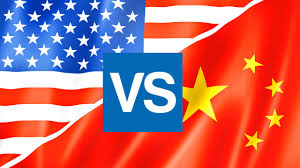
Opinion: What’s best for Africa, China’s reciprocal model of aid or Western ‘handouts’?

by Dr. Francis Onditi, Ph.D
As China-Africa relations deepen, the debate about whether African states should continue depending on western-led aid ‘handouts’ or embrace other progressive models of development will only intensify. Nothing can be of greater importance to this debate than the Forum on China-Africa Cooperation (FOCAC). The leverage for FOCAC lies in the inventiveness of Beijing to embed the principles of ‘reciprocity’ and ‘non-interference’ in her engagement with African states. Reciprocity is particularly important at this time when African states are undergoing political and economic renaissance within a turbulent global system. In this erratic system, China’s rapid economic growth could see the shift of power from the traditional North to South, with China taking center-stage.
This shift of power might usher in a new era of ‘intense strategic competition’ for Africa. This competition might culminate into a tug of war- ‘the reciprocal’ powers versus ‘the handout’ powers. In my humble prediction of this scenario, the epicenter of the struggle will definitely be ‘Africa’. It is early to conclude who will win the ‘war’ but there are empirical indicators showing the rapidly growing strength of China. In this foreseeable future, what are the opportunities for Africa? How should FOCAC handle the eminent threats that might stifle China-Africa relations?
The China-Africa relationship is implemented within the 12 year-old FOCAC framework. FOCAC builds on China’s long-term relationship with more than 50 African states and is based on a win-win strategy. Critics complain the China-Africa cooperation is one founded on twisted economic prospects, with African states playing the role of ‘underdogs’. However, as development trend confirm, China’s role in Africa’s infrastructure and construction industry remains steadfast. China’s investment to the continent increased from USD $20 billion in 2012 to USD $60 billion in 2014.
Some argue that there is a clear moral imperative attached to China’s involvement in Africa. On the top of the list of denunciations against Chinese engagement in Africa is the perceived lack of concern over human rights violations. But when FOCAC is contrasted with the insidious western-led aid culture on the continent, it would be unusual to deny that despite the international assistance that flows to Africa, the continent remains debt-laden. The continent receives USD $50 billion of aid annually. It is important to note that over the past 60 years USD $1 trillion of development-related aid has been transferred to Africa. Yet the continent’s real per-capita income today is lower than it was 50 years ago.
This ‘handout’ type of development has been described as a ‘humanitarian disaster’ – and with good reason. African countries still pay close to USD $20 billion in debt repayment per annum, a stark reminder that aid is impulsive. While the ‘handout’ type of development is struck in infusion of aid leading to a vicious cycle of debts, the China’s ‘reciprocal’ value-based approach is anchored on respect for each other. This value system frames the China’s foreign policy, including trade relations with African states.
China’s rapid economic growth in the last decades has raised demand for African goods. This demand has been traded under better terms of trade, leading to improved export volumes from Africa. With deepening China-Africa trade ties, the continent’s growth rate averages 7%. On a similar note, the per-capita GDP growth rate of an average African country was 2.8% in the 2000s – compared to 0.6% in 1990s. The World Investment Report puts China’s direct foreign investment (FDI) at USD $ 32 billion in 2014 compared to USD $15 billion in 2012. Although this figure represents less than 5% of the total stock of foreign investment on the continent, China’s share of the oversea outward direct investment (ODI) would still be modest.
There are however limitations to FOCAC as a development framework. Although the framework builds on a ‘common identity’ and ‘shared norms’, like other international organizations, it is deeply ‘instrumental’. In other words, FOCAC exists because China, as the more powerful member of the partnership sees a benefit. Without this benefit, China, might just form another asymmetric international system with some other region. For the sustainability of FOCAC and overall China-Africa cooperation, strong foundations of ‘mutual symbiosis’ (both China and Africa benefiting) as opposed to what critics have described as ‘self-interest’ relationship should be the barometer of success.
Dr. Francis Onditi, Ph.D is the Senior Lecturer & Head of Department of the Riara University School of International Relations and Diplomacy.
The article reflects the author’s opinion, and not necessarily the view of CGTN Africa.






